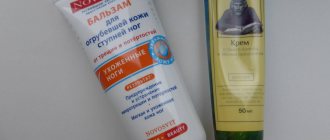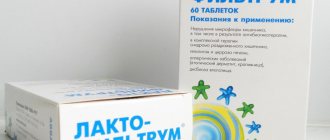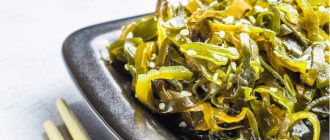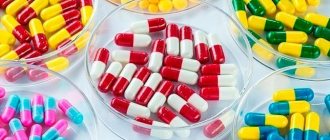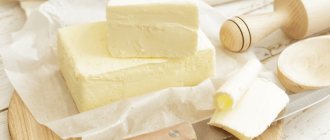What should be meant by the term “thick blood”? This is a high concentration of formed elements (red blood cells, leukocytes, platelets), combined with excess sugar, cholesterol, and lipids.
All this together provokes an increase in the activity of cell membranes, which is why the same red blood cells and platelets literally “stick together,” thereby forming blood clots. And the main reason for too “thick blood” is unhealthy food in the diet.
What products help thin the blood in the human body and prevent the formation of blood clots? Using information from official medical sources, we have compiled a list of 24 most suitable foods for this purpose, and also formulated general nutritional rules. At the end of the article we will talk about foods that, on the contrary, thicken the blood.
Why do you need to reduce blood viscosity at all?
Everything is extremely simple - the thicker the blood, the more difficult it is for it to move through the vessels. Namely, slow blood flow is the main cause of diseases such as atherosclerosis, varicose veins, and hemorrhoids.
Also, too thick blood is one of the main causes of heart, kidney and liver failure (the liver and kidneys also take part in stimulating blood flow).
And the worst scenario is pulmonary artery thrombosis, heart attack and stroke, which develop against the background of blood clot blocking.
Often this even ends in death, since if the victim is not provided with help literally in the first 2 hours after internal hemorrhage occurs, then the cardiovascular system may completely cease to perform its main function, that is, cardiac arrest will occur.
It is also important to maintain normal blood viscosity in case of unstable blood pressure. Hypertension is one of the most common consequences of thick blood, when the pressure is constantly increased, which provokes a deterioration in the tone of all blood vessels, their expansion and thinning of the walls.
What exactly does the body need to normalize blood viscosity? The following microelements can be distinguished:
- Vitamins A, C, E, B1, B2, B6, K. All of them directly affect hematopoietic function, normalize blood circulation or help regulate the balance of lipids and sugars in the blood plasma.
- Minerals and salt compounds. Simply put, the body needs a normal water-salt balance. Therefore, you should drink at least 1.5 - 2 liters of water daily.
- Taurine and other amino acids (including essential ones). The body needs them to stimulate intercellular metabolic processes. This will help break down bad cholesterol and reduce the concentration of lipids in blood vessels.
- Some groups of phytoncides. They help normalize the functioning of the gastrointestinal tract and prevent imbalance of the microflora of the gastrointestinal tract.
- Cellulose. Contained only in fruits and vegetables, and fresh ones (partially destroyed during heat treatment). Fiber helps the intestines absorb more nutrients from food and also retains fluid in the colon.
As for vitamins, their excess negatively affects blood viscosity. For example, excessive consumption of ascorbic acid leads to a decrease in the concentration of potassium in the blood plasma, which provokes water-salt balance and frequent urge to urinate (that is, the body begins to lose fluid more actively). You can lower blood viscosity at home and without pills by following certain nutritional rules.
Our list is based on the most effective anticoagulant products that prevent blood clots, which contain the above microelements. For convenience, we have divided the list of products into groups.
Antiplatelet agents
The main indications for prescribing antiplatelet agents are:
- Cardiac lesions that have led to a lack of blood circulation in the myocardium or completely deprived it of blood flow.
- Ischemic heart lesions, especially those accompanied by tissue necrosis.
- Arrhythmia.
- Tachycardia.
- Prevention of thrombosis in patients who have had a stroke.
- Heart surgery or interventions to restore the circulatory system (stenting).
- Arterial damage.
The cost of such medicines is slightly higher than those containing acetylsalicylic acid. As a rule, such medications are taken in a course, which ensures high rheological properties of the blood constantly.
1-5: Fruits and vegetables
Fresh vegetables and fruits are considered by nutritionists to be the most beneficial for the cardiovascular system. Lemons, garlic, beets, cucumbers, and ginger are best suited for thinning the blood and strengthening the walls of blood vessels.
Lemon
By the way, you can add all other citrus fruits here - they all contain a very large amount of vitamins C and K, which helps normalize lipid balance.
Simply put, they are necessary for the breakdown of excess fats that are in the blood plasma (they can also settle on the walls of blood vessels, thereby triggering the process of blood clot formation). For more information on the effect of lemon on blood viscosity, see a separate article.
Lemon in its pure form is extremely aggressive to the gastric mucosa due to its high acid content.
It is recommended to drink its juice diluted with water (50 grams of juice per 1 glass of water). The optimal daily intake is 2 cups of the prepared mixture.
Pomegranate
Like lemon, pomegranate thins the blood because it contains a large amount of vitamin C. But it also contains about 15 rare amino acids, vitamins P and B6.
That is why it is recommended to include it in the diet for cardiovascular diseases - the trace elements it contains normalize hematopoietic function , improve tone and cleanse blood vessels, and prevent hyper- and hypotension. The use of pomegranate is especially important for people over 50 years of age.
By the way, the zest of the pomegranate is no less useful for its pulp - it has a very high content of vitamin K. When dried, it can be used to prepare various kinds of desserts, jelly, and compote.
Ginger
Ginger is good for the blood because its root contains one of the highest doses of B vitamins (including folate, i.e. B9) of any fruit and vegetable. Moreover, their concentration is maintained even during heat treatment of the root or during its preservation.
It also contains selenium, zinc, copper, manganese and iron - these elements normalize the balance of hemoglobin , which saturates the blood with oxygen.
Doctors also claim that regular consumption of ginger helps to quickly remove toxins from the blood that accumulate there after infectious diseases.
Garlic
The main benefit of garlic is the presence of a whole group of active phytoncides, which have a complex healing effect on the cardiovascular system. It also contains vitamin C, K, E, A, PP, potassium, sodium, and a small amount of selenium.
It is believed that garlic helps thin the blood, and at the same time prevents liver failure (as it neutralizes a wide range of toxins).
Beet
One of the features of beets is that they contain a large amount of indigestible fiber, which retains fluid in the body and normalizes the functioning of the gastrointestinal tract.
You can learn more about the benefits of beets for blood from a separate material.
And these properties are preserved even in boiled beets, so it is recommended to add them to salads (including fruit ones - the result is quite a tasty combination), and to soups, and to any other side dishes.
See also:
- 15 More Vegetables That Thin Your Blood
- 10 fruits to reduce blood viscosity
Olive oil
Olive oil
Consuming olive oil at least once a week reduces platelet activity, thanks to the antioxidants contained in the oil. The study found that people who consumed extra virgin olive oil, which is high in phenolics, had lower levels of blood clot-promoting substances. Just don’t heat-treat olive oil, as it loses its beneficial properties. Add it to salads, sauces, dip bread in it.
6-9: Berries
Many berries contain essential amino acids and ascorbic acid, which helps the body get rid of excess cholesterol and lipids (that is, stimulates their breakdown by the liver).
The most useful in this regard are cranberries, black currants (red and white have a fairly high content of tannins, which increase blood viscosity), and viburnum.
Kalina
Viburnum contains a whole range of resin-like essential oils (about 2% of the total weight of the berry), which have a positive effect not only on the cardiovascular system, but also on the immune system.
But it is worth considering that their content decreases sharply when the berries are dried, so they should be eaten fresh.
Cranberry
This berry contains the highest amount of B vitamins among all others.
It also contains rare vitamins such as K1, PP - they help normalize the functioning of the endocrine system. But it is hormones that regulate the processes of lipid breakdown and the absorption of carbohydrates and proteins.
This is why eating cranberries reduces blood viscosity.
Black currant
Currants are good for the blood because they contain no less vitamin C than lemons. Moreover, this is relevant not only for berries, but also for the leaves of the bush (that is, you can prepare a decoction). To provide your body with a sufficient daily intake of ascorbic acid, it is enough to eat only 20–30 berries daily.
They also contain sulfur, silver, copper and even lead - these elements well regulate metabolic processes in muscle tissue, thereby helping to strengthen the heart muscle and improve the tone of blood vessels (which also consist of elastic muscle tissue).
Mulberry
The most useful for reducing blood viscosity is black mulberry - it contains phytoncides and essential oils .
Also, its inclusion in the diet will help get rid of chronic diseases of the gastrointestinal tract and prevent the development of constipation.
See also:
- 10 more berries that help thin your blood
Garlic
Garlic
Garlic has natural antibacterial and antimicrobial properties, as well as anticoagulant activity and reduces the formation of blood clots. The best way to reap the benefits of garlic is to crush the cloves with the flat of a knife to “release” the beneficial compounds, then eat the cloves raw or quickly roast them in the oven.
10-12: Drinks
Many people know that traditional green tea and other herbs help thin the blood and lower blood pressure. What other drinks will help thin the blood and reduce the likelihood of blood clots?
Green tea
It contains almost 4 times more antioxidants than coffee. What are these microelements for? They prevent the oxidation of blood cells, reducing the likelihood of red blood cells and platelets adhesion.
In addition, green tea contains components that stimulate the production of endorphins.
For 5 more teas to reduce blood viscosity, see a separate article.
Cocoa
Cocoa is also good for the blood. Eating it in the form of chocolate, butter, and cocoa powder stimulates the body to synthesize endorphins - “joy hormones” that take part in the absorption of lipids and carbohydrates (including by the brain).
At the same time, it is enough to consume only 20–30 grams of cocoa daily to feel the positive effect on the cardiovascular system.
Natural juices
Fresh juices with pulp are especially beneficial for the cardiovascular system - they contain vitamin C, B-groups, and fiber. Citrus fruits, apple, pomegranate, apricot are some of the most useful in this regard.
Just give preference to freshly squeezed natural juice rather than various kinds of compotes or canned ones. In the latter, the content of the same vitamin C is reduced by almost 10 times.
For 7 other juices that reduce blood viscosity, see a separate article.
Chimes with depyridamole
This drug can be called mandatory for use by pregnant women after the 20th week of gestation. In the annotation you can read a phrase warning about possible risks. If a local obstetrician-gynecologist has prescribed a course of Curantil, this indicates that the woman is not at risk and can safely take a blood thinner.
The medicine accelerates the blood, allowing the expectant mother to share nutrients with the child. Taking Curantil will ensure the full development of the unborn baby.
13-24: Other products
Doctors also recommend that your diet be sure to include nuts, fatty fish, honey, flaxseed oil, dried fruits - all this helps to reduce viscosity and increase the alkaline balance of the blood (this also reduces the likelihood of blood clots and removes some manifestations of existing thrombosis).
Nuts and seeds
Almost all of them contain vegetable and essential oils, resins, which are biologically active additives. They help digest proteins, carbohydrates, and fat cell derivatives.
The healthiest nuts are pistachios and walnuts (but peanuts are “harmful” - they contain a very large amount of complex proteins and fats). Seeds include poppy, dill, sunflower, and many varieties of pepper (in the form of peas).
Dried fruits
Dried fruits improve blood composition because they contain easily digestible fructose and fiber. Dried berries are considered more beneficial for the cardiovascular system, in particular: cranberries, blueberries, blackberries, hawthorn.
But you shouldn’t overuse them – you can end up with excess vitamin C and blood sugar.
Porridge
All cereal porridges are important for the blood because they contain fiber. This includes oatmeal, buckwheat, and rolled oats. But rice, on the contrary, should be discarded, since it contains a large amount of starch (which is a tannin).
An excellent combination is porridge with dried fruits. Fiber will help the gastrointestinal tract more actively receive nutritional components from food, as well as normalize the water-salt balance of the blood plasma.
Omega-3 fatty acids
The highest content of such acids is found in fatty fish and flaxseed oil. These components are most needed by the brain, as they stimulate metabolic functions between cell membranes. And at the same time, they reduce the likelihood of “adhesion” of red blood cells and platelets .
The easiest option to increase the concentration of omega-3 fatty acids in the body is to consume fish oil (costs mere pennies, sold at any pharmacy).
Linseed oil
As mentioned above, it contains omega-3 fatty acids. In principle, this oil is considered one of the most useful among vegetable oils.
The only caveat is that it should not be used for frying (as this releases many harmful carcinogens).
Honey and propolis
Bee products are also important for blood. They are a source of minerals, metals and salts. At the same time, almost 30% of honey consists of ordinary water, there is no fat at all.
And carbohydrates are presented in the form of easily digestible fructose, which has minimal effect on blood sugar levels.
Propolis also contains phytoncides and essential oils - these elements will help strengthen the immune system and remove accumulated toxins from the blood.
Turmeric and other spices
The main element of turmeric is curcumin, which is an antioxidant. It also stimulates oxygen saturation in the blood and prevents a decrease in the tone of the heart muscle.
Many spices also contain rare antioxidants, which have a complex positive effect on the functioning of the cardiovascular and endocrine systems.
The most useful spices are:
- basil (fresh and dried);
- thyme;
- white pepper;
- saffron.
Apple vinegar
Apple cider vinegar is a mixture of a whole range of organic acids that normalize the balance of intestinal microflora and also break down lipid compounds.
Grape vinegar acts in a similar way, but it has a higher alkali content, which can negatively affect diseases of the gastrointestinal tract.
Soda
The main beneficial property of soda is that it increases the alkalinity of blood plasma. And the higher the pH level, the better, since in this case the risk of adhesion of formed elements is reduced exponentially, and at the same time the likelihood of micro-scratches on the inner walls of blood vessels is reduced.
But you should not abuse soda, since it is based on sodium, and its excess in the body has a toxic effect on the neural system.
Ginkgo biloba
It is a universal stimulant of the cardiovascular system. Not only improves blood composition, but also stabilizes blood pressure. You should not overuse ginkgo biloba, as this can cause energy deficiency.
The recommended daily intake is only 15 grams (and children under 14 years of age are generally recommended to exclude it from the diet).
Artichokes
They normalize the water-salt balance and provide the body with a huge portion of vitamins K and B-group .
The content of vitamins and their concentration are preserved during heat treatment of artichokes or during their preservation.
Kalanchoe
This also includes aloe and a whole range of medicinal plants, which contain viscous and sticky juice - this is facilitated by resinous essential oils.
The use of decoctions and folk recipes based on them will help strengthen the heart muscle, remove most of the toxins from the blood, and normalize the tone of blood vessels (this will prevent the thinning of their walls).
It is necessary to take into account that both Kalanchoe and aloe are powerful allergens. Accordingly, if you are going to use them, you should first conduct a test on the body’s reaction to make sure there is no hypersensitivity.
Also check out the table:
Water
Water is the main fighter against thick blood
If you don't drink enough water, dehydration sets in, which can cause your blood to thicken, increasing the risk of a blood clot. On average, you need to drink two liters of water a day, but no less. One way to check if you're on the right track is to test your urine. If it's pale yellow or clear, you're probably drinking enough, but if it's amber or darker, you need to increase your daily water intake.
Of course, people with certain medical conditions, such as congenital heart defects, may need blood thinners to reduce their risk of heart attack or stroke. If you have any health concerns, you should consult your doctor before introducing these foods into your daily diet, as they may interfere with some medications.
What should you avoid?
But it’s not enough to just include food in your diet that will help thin your blood. You should also refuse (or rather, minimize their consumption) from those foods that contribute to blood thickening. These include:
- Almost all dairy products. Milk contains casein, which is a special carbohydrate that breaks down into derivative elements only under the action of certain groups of enzymes. Simply put, these are complex carbohydrates, which take many times longer to digest than fructose and other simple sugars. This is why dairy products thicken the blood.
- Alcoholic drinks. All of them contain ethyl alcohol, which is perceived by the body as poison. Its breakdown, neutralization and removal from the body is accompanied by the use of a huge volume of liquid (and this is why a person feels very thirsty after drinking alcohol). At the same time, alcohol increases blood viscosity exponentially. This is true even for small amounts of weak alcohol. At the same time, you should definitely avoid vodka and beer, which tend to thicken the blood. Use cognac with caution. But red wine has a special effect on the blood, which you can read about in a separate article.
- Animal fats. Pork, beef, sausage products - all contain animal fats that break down into lipid compounds. When there is an excess of them in the body, they are not absorbed, but are deposited in the subcutaneous tissue, as well as in the blood vessels themselves. You shouldn’t completely exclude animal fats from your diet, but it should still be based on grains, vegetables and fruits.
- Potato. In principle, absolutely all products that contain a large amount of starch (for example, rice) can be written here. It is transformed into carbohydrates in the body, which contributes to a sharp increase in sugar levels in the blood plasma and its thickening.
- Bananas. Although they are fruits, they contain a large amount of carbohydrates. If you do eat them, then no more than 2 medium-sized fruits per day (and even less for children).
Description of the drug Tiklpid
Taking Triclid can reduce the aggregation of blood platelets and significantly reduce the viscosity of biological fluid. Violation of the prescribed treatment regimen and overdose can lead to the following adverse reactions:
- bleeding;
- lack of platelets necessary for natural blockage of damaged areas of arteries, vessels and tissues;
- decreased levels of white blood cells;
- abdominal pain;
- diarrhea.
In case of severe blood thickening, the drug is prescribed for a long course, and the patient’s condition is regularly monitored. When the rheology of the main biological fluid is restored, the drug can be discontinued. However, stopping the medication does not replace regular blood quality testing.
Ginger
Like cayenne pepper, ginger contains salicylates, which studies have shown to cause a mild anticoagulant reaction without causing bleeding complications. “However, experts caution against the simultaneous use of ginger-based nutritional supplements and medications for thrombosis,” says Cristina Ruggieri. — There are scientific works proving that such a combination may not be safe. Be sure to discuss this with your doctor."
How to take it - 3 recipes
There are a lot of folk remedies based on garlic that will help quickly thin the blood. The most effective, judging by the reviews, are the following:
- Garlic tincture with vodka. It is also an excellent remedy for the treatment and prevention of atherosclerosis. You will need to finely chop 50 grams of garlic, pour in 1 glass of vodka. Infuse the resulting mixture for 1 week at room temperature. Take 10 drops after or during meals 2 times a day.
- Garlic with honey. To prepare this product you will need 250 grams of garlic and 350 grams of honey. Mix the ingredients thoroughly, add 20 milliliters of lemon juice. Infuse for a week in the refrigerator. Take 1 tablespoon 20-30 minutes before meals 3 times a day.
- Garlic with milk. You will need 5 cloves; they are pressed through a garlic clove and mixed with a glass of milk. Bring to a boil and, stirring, cook over low heat for 10 minutes. Next, remove from the stove and let cool completely. Take 5 – 6 times a day 20 minutes before your planned meal.
Garlic with milk not only helps normalize blood viscosity, but is also an excellent remedy for worms. Moreover, even children can take it.

